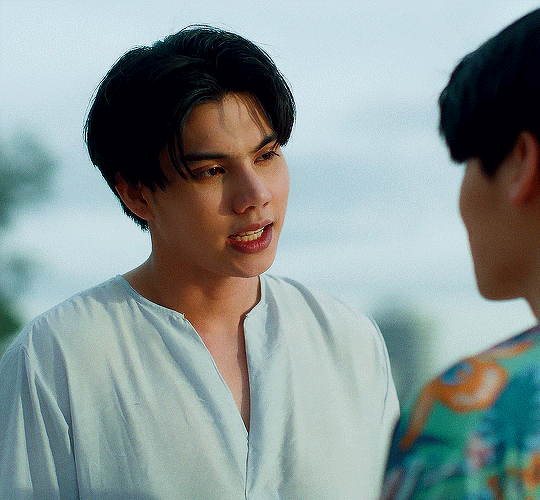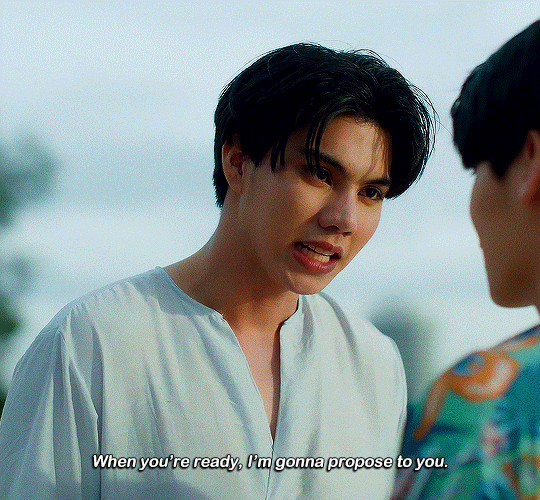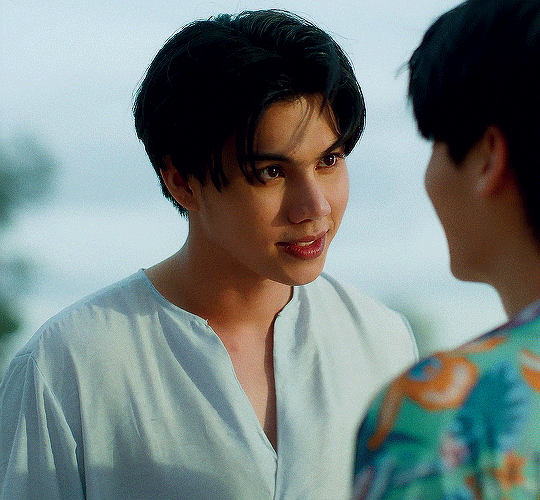#this proclamation is agonisingly beautiful
Photo








are you asking me...to marry you?
love in the air special episode
#userdramas#asianlgbtqdrama#bldramaedit#love in the air#love in the air special#love in the air series#peat wasuthorn#fort thitipong#thai drama#this proclamation is agonisingly beautiful#that line 'maybe after you get to live the life you want'#oh it makes me weep#pai loves sky so selflessly#be happy forever ♥#anon ty so much for the request
495 notes
·
View notes
Text
Book Review: The Lies of Locke Lamora
by Wardog
Wednesday, 14 November 2007
Wardog actually likes something - possibly because she didn't have to pay for it.~
Father Chains sat on the roof of the House of Perelandro, staring down at the astonishingly arrogant fourteen-year-old that he little orphan he'd purchased so many years before from the Thiefmaker of Shades' Hill had become.
"Some day, Locke Lamora," he said, "some day, you're going to fuck up so magnificently, so ambitiously, so overwhelmingly that the sky will light up and the moons will spin and the gods themselves will shit comets with glee. And I just hope I'm still around to see it."
"Oh, please," said Locke. "It'll never happen."
The Lies of Locke Lamora is basically a fantasy-heist novel, but it's also a pleasant breeze through a stale genre (yes, I'm bitter), shorter than the typical eighty million pages and a surprisingly assured and competent debut. I picked it up in Hay on Wye for a sum so ludicrously trifling (a mere one of my English pounds) that it almost felt as if Scott Lynch had come up to me in the street and asked me nicely to read his novel, the consequence of which is that my critical objectivity is shot to buggery but I think I'd still be recommending this if I'd forked out the
requisite 7.99.
Locke Lamora - otherwise known as the Thorn of Camorr - is the leader of a tightly knit group of conmen-thieves known as the Gentleman Bastards. As the novel kicks off, they are in the process of scamming a couple of aristocrats out of a portion of their fortune, coincidentally violating the long-standing Secret Peace that has been negotiated between the criminal underworld and the upper echelons of society. Meanwhile a mysterious personage known as the Grey King is preying upon the thieves of Camorr and forces Locke to participate in his personal vendetta against the city's crimelord Capa Barsavi. Needless to say, events soon spiral massively out of Locke's control and he finds himself caught up in something that threatens not only the people he cares for but the entire stability of the city. The first third of the book is a rompish heist, complete with all the usual twists and turns, but then it twists on its axis becoming a much darker and more serious story, although it never loses the edge of gallows-humour that makes it such a pleasure to read.
The Lies of Locke Lamora is a truly a rootless, bastard child of the genre: there's a fair mixing of Feist, Gavriel Kay, Brust, Miville, Pratchett and Dickens to be found within, to say nothing of the more than passing nods to movies like The Godfather, The Sting, Oceans 11, Scar Face and Goodfellas. It's not flawless, but it's still damn good: a fast-paced, page-turning adventure story set in a complex and intriguing world that doesn't drown you in detail (although I expect the author will soon forget this and commence the deluge). Camorr provides an excellent backdrop for Lamora's exploits: an island city built of Elderglass by a race nobody remembers, it seems to be inspired by 16th century Venice, with all the attendant squalor and decadence. There's definitely world-building going on but its of the subtle kind that successfully creates the impression of a living and very real city without racking up a page count hefty enough to kill a walrus (*cough* Miville *cough*). Lynch's imagination encompasses both beauty and brutality, dancing easily from the banal to the opulent, from frivolity to genuine threat. One of my favourite chapters introduces the fencing master, Don Maranzella in his House of Glass Roses:
"Here was an entire rose garden, wall after all, of perfect petals and stems and thorns, silent and scentless and alive with reflected fire, for it was all carved from Elderglass, a hundred thousand blossoms, perfect down to the tiniest thorn ... ... each wall of roses was actually transparent .... Yet there were patches of genuine colour here and there in the hearts of the sculptures, swirled masses of reddish-brown transulence like clouds of rust-coloured smoke frozen in ice.
These clouds were human blood.
I can forgive Lynch for lingering in his fairytale garden of blood-thirsty roses and his farmer-turned-fencing master is a wonderful antidote to all those artistic gentlemanly types with their flourishing rapiers. This chapter seems to illustrate Lynch at his very best - the strange, sculpted roses and the introduction of the fencing master, the shift from pretension to pragmatism, from description to dialogue, from fantastical lyricism to dark humour and the sudden stripped-down truth about what Jean Tannen has really come to learn:
"Jean, you misunderstand." Maranzella kicked idly at the toy rapier and it clattered across the tiles of the roof top. "Those prancing little pants-wetters come here to learn the colourful and gentlemanly art of fencing, with its many sporting limitations and its proscriptions against dishonourable engagements. You, on the other hand," he said, as he turned to give Jean a firm but friendly poke in the centre of his forehead, "you are going to learn how to kill men with a sword."
The book itself is interestingly structured - it reminds me rather of Heroes, in fact. It consists of a succession of short chapters building to a mini-climax, followed by a brief interlude, either a tale of the City and its Gods, or a flashback to the early years and training of Locke and his gang. This actually works really well. The interludes are generally absorbing enough that, even though I was eager to find out what was going to happen next, I didn't skip them or resent reading them ... at least not very much. Furthermore, most of the interludes, although not precisely relevant, often offer an illumination on future events, thus rewarding the alert reader. And it does solve the perennial fantasy book problem of how to introduce the hero to the reader and show his gradual development from child to adult without spending the first five hundred pages of the novel narrating every little moment of the hero's childhood in agonisingly tedious detail. Part of me, however, couldn't quite shake the conviction that it was a cheap trick. It's a very obvious way to build tension and create anxiety and uncertainty in the reader and occasionally interferes with the pacing at critical moments.
Lynch's is a self-consciously "dark" world; there's an awful lot of swearing and torture, and the central characters are, of course, thieves and murderers. But since we only ever see them stealing from the rich and murdering those who thoroughly deserve it and their loyalty to each other is unswerving, there's never really any question of their being admirable characters deep down. This is not a problem per se; but the book is about as morally ambiguous as my Grandmother:
"I only steal because my dear old family needs the money to live!"
Locke Lamora made this proclamation with his wine glass held high ... ... the others began to jeer.
"Liar!" they chorused
"I only steal because this wicked world won't let me work an honest trade!" Calo cried, hoisting his own glass.
"LIAR!"
"I only steal," said Jean, "because I've temporarily fallen in with bad company."
"LIAR!"
At last the ritual came to Bug; the boy raised his glass a bit shakily and yelled, "I only steal because it's heaps of fucking fun!"
"BASTARD!"
Stealing may be wrong but it's also big and clever and all the cool kids are doing it. The exuberance and loyalty of the Gentleman Bastards is charming and it's impossible not to root for them. On the other hand, I am conscious of a vague dissatisfaction with Locke. The book is careful to assert that he is skinny and unremarkable and a poor fighter but he is also a consummate conman with incredible reserves of tenacity and courage, he is cunning, daring and quick-thinking, and there is no sacrifice he will not consider to preserve the safety of his friends and loved ones. He can be ruthless when necessary, he has the survival instincts of a rat, he's reckless occasionally but only in a way we're meant to think is cool and, on top of all this, he has a conscience and listens to it. Needless to say his origins are shrouded in mystery (I'm sure this will be Very Important later) and his creator is head over heels in love with him. I came dangerously close to finding the character annoying and if Lynch isn't careful he's going to be unbearable a couple of books down the line.
Speaking of the dreaded "couple of books down the line" The Lies of Locke Lamora does a reasonable job of offering a coherent and contained plot arc, but there are several dangling threads (the most irritating of which is Locke's love interest, a woman occasionally mentioned but never introduced) presumably left there to wet the appetite for future books. The mighty internet tells me there will be seven of these, which triggers all my cringe mechanisms. This cannot end well. Has nobody learned anything from JK Rowling?
The second book of the septad, Red Seas Under Red Skies, has recently been released - having enjoyed the first book has much as I did, I'm now terrified to read the second in case it sucks. I guess I'll have to wait until it's available for 1 again. But, in the meantime, you could do worse than taking a look at The Lies of Locke Lamora. It's not perfect - Mary Sue-ish main character, a plot necessitated, damn near omnipotent bondsmage - and I understand it has received some criticism for its modern-sounding speech but, quite frankly, I found that contributed to the lively, irreverent tone of the book. But it is a fun, fast-paced read in a ponderous genre and I thoroughly enjoyed it.
PS - This is really childish (and has nothing to do with the review at all) but I think I also need to point out that Scott Lynch looks like this --->:

Arthur B
at 17:09 on 2007-11-14I was toying with doing a Reading Canary for this one, and might still do if I get around to picking up
Red Seas
, but you seem to have covered most of the bases. I agree that criticising the book for modern-sounding speech is reaching a little - if an author's simply more comfortable writing dialogue in a modern style then I'd rather they did that than attempt to try Ye Olde Speeche and fail horribly. I also agree that Lynch is a little too in love with Lamora, and indeed most of the book's fans are a little too much in love with Lamora; the fun of the book comes when Locke screws up horribly, and if you look at it objectively he isn't actually as nice a guy as Lynch thinks he is. That's why the book works, of course: the big central conflict is about accepting a rotten compromise which causes suffering for a few but provides peace and security for many, or rejecting that compromise knowing full well that rejection means no peace or security for anyone, and it's good that the representatives of both sides have their good and bad points.
The big criticism I'd have is that all the flashback bits to their childhood simply weren't as interesting to me as the main story: I'd much rather have a book half the length without the flashbacks. It doesn't matter whether Jean was taught swordplay by a farmer-turned-toff in a blood garden or by a toff-turned-farmer in a turnip patch: I can't think of any instance in the main storyline where it becomes at all relevant. There is one flashback which nicely foreshadows the final conflict, but it does so by basically explaining what Locke's tactic is going to be, so the ending is a bit obvious. Also, yes, big smirking long-haired Scott Lynch wants to kiss big smirking long-haired Locke, a meeting of shit-eating grins which thankfully cannot actually occur in real life.
Thing is, I'm not sure whether I'll ever actually get around to picking up
Red Seas
. I picked up
Lies
second-hand too, and while it's a fun and consistently not-crap read it isn't quite good enough to force me to go buy the new one. I'm not convinced that the character merits more than one book about him.
permalink
-
go to top
empink
at 00:01 on 2007-11-15@ Arthur
For now, I'd say not to bother with Red Seas. It's also a fairly consitently not-crap read, but imho the author's love for his character really burns strong in the sequel. I don't know why I couldn't put my finger on it when I read it, but Kyra hits the nail on the head here. He really, really loves this character of his, and it means he gets to do all kinds of improbably cool stuff.
Now, while that was fun in the first book, it starts to wear on you in the second one. The dialogue needs to be beaten with the boring stick (I swear, everything everyone says is so witty that you WISH someone would say something dumb at some point. Which they don't. ARGH), and the plot is just...stretchy, in terms of suspension of disbelief.
All I know to say is that, having read Red Seas, I'm not going to jones for the rest of the series anywhere as near as I am jonesing for one or two others, because it probably won't be worth it.
PS, Kyra, the mysterious woman never actually shows up in Red Seas. But she does get mentioned. A LOT. *facepalm*
permalink
-
go to top
Wardog
at 09:22 on 2007-11-15ACtually my copy of Lies was brand, spanking new and still one pound - that's why I'm so smug about it. I LOVE you Hay on Wye!
Ahem, anyway. I actually found Locke irritatingly virtuous. Even when he's trying to get a suit of clothes, and he drops an innocent waiter into the shit, he still takes time extract said waiter *and* give him a purse containing more money he's ever held in his life. Until that point I was actually impressed that he'd completely fucked up the waiter's life - it made him less sympathetic but I think, perhaps, more interesting?
I genuinely didn't mind the flashbacks and interludes; they weren't *quite* as interesting as the main plot but I didn't find them sufficiently tedious that they detracted from it too badly. And I was oddly into Jean Tannen (even though he's basically just a side-kick protector for Locke)so I really loved the stuff in the House of Glass Roses; also it is relevant because it "explains" why Jean can take out the two shark-baiting sisters without getting completely mullered.
And thanks for the warnings, Empink, I very very nearly bought a full-price copy of Red Seas the other day and I'm now *so glad* I didn't. I'm not sure I can stand another book of love-interest build-up because you just *know* she won't live up to it. And I don't wish to see Lynch consummating his relationship with Locke in an orgy of cool stunts.
I did find Lies genuinely witty but mainly because the characters tended to say something deeply pragmatic or macabre or just plain inappropriate at what would otherwise be very serious moments. It helped me get through the nasty bits (becuase I'm a wimp) and it also tended to have a nice edge of desperation to it - whereas I don't think I *want* a dazzling virtuoso wit-fest from the Book II.
permalink
-
go to top
Arthur B
at 12:19 on 2007-11-15Empink:
I'd been wondering what I'd found weird about the dialogue in
Lies
, but you've put your finger on it: everybody's a smartarse. I can remember a couple of times where I was having trouble following conversations, because everyone's dialogue is so similar in tone and delivery that there's little differentiating them. It feels less like a bunch of different people are having a conversation and more like Lynch has a bunch of sockpuppets that he's using to tell a story - you never forget that it's Lynch behind all of them. (Still, at least it is monotonous in a clever and witty and entertaining way as opposed to monotonous in a consistently dumb and boring way.)
Kyra:
You're right about the overvirtuousness. I was remembering the bit where he wrecks the waiter's life, but not the part where he makes it all better. I think the worst thing he does in the entire book is play a practical joke on the secret police (you know, the one with the boats full of shit).
I like Jean too, but I worry that I only like him because he's a floating bit of driftwood in an ocean of Locke; he's the only other interesting character we spend an extended amount of time with (though I also liked the Capa's daughter and the Grey King and the head of the secret police), so he's a welcome relief from an unending shower of Lamora-love. As far as the Glass Roses stuff explaining the shark sisters fight, I consider "Jean is a rock-hard son of a bitch" to be a more than adequate explanation for why he beat them. Jean being a rock-hard son of a bitch is neatly demonstrated in the main story by, well, Jean beating the shark sisters...
Both of ye:
I think it's fairly obvious at this point that the Mysterious Love Interest is, in fact, Scott Lynch in a dress.
Either that, or she'll be the big bad at the end of the series.
Possibly the big bad will be Scott Lynch in a dress.
The intersection of Lynchsmirk and Lamoracock providing the cure to the world's ills.
permalink
-
go to top
Wardog
at 14:18 on 2007-11-15I actually thought the dialogue in Lies was just about cope-able with - it's true that everyone sounds nearly the same but that genuinely didn't bother me except occasionally when Locke was conversing with arisocrats and then it grated somewhat. Dona Sofia, for example, is clearly meant to have a distinct and feisty personality with her alchemy and everything - but I never really got much from her. I think I was just glad to have snappy, modern-sounding dialogue for a change, instead of ponderous faux-medieval stuff.
But Jean was a fat, weepy merchant's son - he had to go from that to RHSOFAB somehow; sure, you didn't need to really know how but since these two sisters were meant to be *all that* it wouldn't have made sense for some thiefly-brawler to be able to take them out.
I still feel positive about Lies, despite its flaws. You were obviously considerably more irritated by the Locke-Lovin' than I was. And Lynch isn't the most talented ventriloquist but I didn't feel him in the background as much as you did either. I shouldn't have put up the picture, I think I've just generated undue hostility by drawing attention to the fact he looks like the sort of person we know.
But I genuinely think Lies stands as a good fantasy read; future books, well, we'll see...
permalink
-
go to top
Wardog
at 14:21 on 2007-11-15Also, I think Arthur is just being discriminating because Lynch isn't a hottie like
Gene Wolfe
;)
permalink
-
go to top
Arthur B
at 14:57 on 2007-11-15
But Jean was a fat, weepy merchant's son - he had to go from that to RHSOFAB somehow; sure, you didn't need to really know how but since these two sisters were meant to be *all that* it wouldn't have made sense for some thiefly-brawler to be able to take them out.
Yeah, but we only know that because of the flashbacks, so Lynch ends up setting up a problem which he then feels that he needs to solve with more flashbacks. It'd be more interesting, to me, if he'd established the sonofabitchness of Jean early on, and then dropped hints through the main action that Jean actually comes from a softer, more pudding-like background. I honestly don't think it matters at all, to
Lies
, how Jean got hard - I think most readers can happily accept that a life on the streets as a criminal will tend to make people either sneaky or fighty, regardless of their background.
My worry is that Lynch felt the need to dump all the backstory with Chains and the farmer-turned-toff and the farmer-who-ended-up-a-farmer-again because he's got this big backstory he wants to hint at which is suddenly going to becoming very relevant in the later novels, in a kind of "James Potter was mean to Snape at school" kind of way. And who's willing to bet that this is going to tie in with Long Lost Bint somehow?
Don't worry about the photo, I'd probably be saying the same sort of things about the novel even if Lynch looked like my beloved Wolfe - although it's a lot funnier knowing that Lynch looks like that. I do think it's a fun, likeable novel and worth reading for entertainment; most of my problems stem from my impression that Lynch wants us to think it's something more than that. Then again, maybe I've been spoiled by
Vlad Taltos
, who pushes similar buttons and whose writer looks like
the bastard son of Terry Pratchett and Frank Zappa
.
permalink
-
go to top
Wardog
at 15:12 on 2007-11-15Jesus CHRIST! *faints*
Yeah, I think you might be right about Jean; I guess it depends how much we care that this stuff is going to become Meaningful later. JKR has soured me on that sort of thing forever.
permalink
-
go to top
Arthur B
at 15:38 on 2007-11-15Is that you swooning before the dreamy gaze of Brust?
permalink
-
go to top
Alice
at 22:21 on 2013-08-28Necro-ing this post, since I've finally gotten round to reading the book after finding the post via the random button.
I mostly more or less enjoyed it, in an "oh, must you really, Scott Lynch?" sort of way - I actually enjoyed the backstory parts more than the main plot, perhaps because while Lynch SUPER-UNSUBTLY wrote out Locke's love interest right from the beginning, at least he didn't have her murdered and delivered to her father in a barrel of horse urine in order to kick off the main plot.
(That was the bit that really made me roll my eyes and give up on enjoying the book in anything other than a superficial way. Lynch slightly redeems himself by having the head of the secret police be a badass old lady with a cane, but I really liked Nazca, I thought she was cool, so I was extra annoyed when she got fridged.)
I really like Jean Tannen, though, so part of me is tempted to at least give book 2 a go.
permalink
-
go to top
Robinson L
at 15:30 on 2016-10-05Listened to this one on audiobook several months back, and enjoyed it as a fantasy heist/adventure yarn; it was quite fun. I hope it wasn't Lynch's intention for me to read any deeper meaning into it, because I really doubt it would hold up to that kind of scrutiny, and it would raise a bunch of awkward questions I don't think he's prepared to answer.
I was a bit disappointed by the ending, because the best bits of the book are generally when somebody is executing a masterful con: whereas Locke spends the last few chapters of
Lies
alternately pleading, cajoling, and punching his way to victory.
I guess I didn't mind too much Locke being both an authorial darling and a hyper-competent master criminal, because, as Arthur pointed out in his original comment, he regularly screws up, finds himself outsmarted or outmaneuvered, and generally gets the everloving shit kicked out of him and/or reduced to a blubbering wreck. For me, this was enough to make the balance tip over into “enjoyable” protagonist rather than “insufferable,” though I realize folks' mileage will vary.
I also really liked the character of Father Chains. The samey-ness of all the characters' dialogue has been brought up already, and I just kind of shrugged it off—however, even with that, I feel like Chains got in an inordinate amount of memorable lines. Also, for some reason, the character of a hard-cussin' scoundrel priest really appeals to me. (Technically, Locke is one, too, but his priestliness is kept mostly to the background.)
I was also disappointed they didn't wind up causing the death of the Bonds Mage (perhaps by accident). As arc plots go, “high class thieves on the run from an immensely powerful and vindictive wizards' guild” sounds pretty solid, and could justify the seven book length to show how our heroes go from fleecing the city's upper class to taking on said wizards' guild and winning.
Like Alice, I disliked that the book fridges Nazca in such an ignominious fashion to kick off the main plot, although I was somewhat mollified that the villain then proceeded to wipe out the rest of the Clan Barsavi in similarly brutal fashion, meaning she wasn't the One Big Death, she was just the first major casualty (plus, three quarters of Locke's chums, also all male, go down shortly thereafter). Again, though, I recognize not everyone is going to be satisfied with this, nor am I arguing they should be.
For whatever it means, in the third book, Nazca is the only member of the Barsavi family who Jean deems worthy of mentioning among the list of people they've lost when he's reeling it off to Locke.
Speaking of deaths, I was extremely relieved that Jean Tannen survived the Grey King's betrayal: Locke really needed a sidekick for the story to work, and Jean was easily the best of the lot. His friendship with Locke is great, and one of my favorite parts of the book was actually the flashback to when he first joined the crew, after Locke's initial attack of sibling rivalry, where Jean asks Locke to help him steal stuff he can use as a death offering for his deceased parents, and Locke asks Jean to help him learn how to use an abacus*. So cute.
*This after Father Chains uses Jean's superiority with an abacus to humiliate Locke and demonstrate why Jean is a useful addition to the crew.
So that part was good, and I didn't mind the other flashbacks so much, though I might have if I'd read through the book instead of listening to it on audio. What I did mind was Lynch dropping a chapter about the Spider tumbling to Locke's latest scheme and setting a trap for him right after the cliffhanger chapter where he's been thrown into the river in a barrel of horse urine and left for dead. First and most obviously because it's a transparently artificial way to hold off resolving said cliffhanger (unlike the flashbacks, which happen in every chapter); but second and also perniciously, because it sucked so much of the tension out of later scenes with Locke trying to reestablish his Lucas Fehrwight scam—the main source of tension was now “will Locke fall into the Spider's trap, and if so, how will he escape it?” so all the stuff with him stealing an appropriate set of clothes felt like so much wasted time before we got back to the next big story question. And that's also unfortunate because I think the clothing scam was actually one of the strongest parts of the book.
Speaking of which, I see what you mean about Locke being “irritatingly virtuous,” though I didn't mind it much, either. The only part which really got me was the way he immediately opted for saving all the high-bread toffs of Camorr at the risk of missing his chance for revenge against the Grey King. I get that he's supposed to be a noble rogue character, but that part struck me as too altruistic to fit his personality. I would expect him at least to be seriously tempted to leave the aristocrats to their fate while he goes and settles the score with the guy who murdered all but one of his best friends. But no, in his mind, it isn't even a choice, and I don't understand why.
I think it should be noted, though, that Locke also does some really screwed up shit which he's never really called on (a major reason I resist taking the books at all seriously). This is a case in point:
he drops an innocent waiter into the shit, he still takes time extract said waiter *and* give him a purse containing more money he's ever held in his life.
Well, yeah, but he *also* gets the poor sod permanently exiled from the only home he's ever had, presumably cut off from friends, family, everyone and everything he knows. Now, for some people, I suppose this could be the best opportunity of their lives—for others, it would be a kind of hell. For all we know, that waiter might well have committed suicide a couple years later, unable to cope with his life's circumstances.
Other crimes of Master Lamora which go unaddressed: murdering the Grey King's assassin after getting information out of him by shutting him up in a cellar and setting fire to it. True, the man had just killed one of his and Jean's best friends and was complicit the conspiracy to kill them all, but that's an incredibly cruel way to dispatch him.
And biggest of all, he manipulates the Camorri top brass into demolishing the Grey King's escape ship and consigning the ~15 person crew to what I also recall being described as a particularly horrible death. True, they were all the Grey King's lackeys, but they were just there to help him get away with the loot (and not to infect half the city with awful plague, as Locke claims), which hardly seems to make them deserving of such a grisly execution.
I let all this pass because I take the books in a “fun adventure” mindset; if I took them seriously, I'd be forced to conclude that Locke Lamora is a terrible person in ways the books themselves aren't prepared to explore.
A final note on the audiobook version: Michael Page is a great narrator, his voice nicely capturing the story's narrative style, and bringing the characters vividly to life. He also does a wonderful job with the various accents which come into play (mostly as one or another of Locke's characters for a heist), making them very distinct and memorable. Perhaps too memorable, for I'm sure I've caught him recycling a number of secondary voices and accents—he's no Jim Dale—but still an impressive accomplishment which I think utterly nails the tone of the series.
0 notes